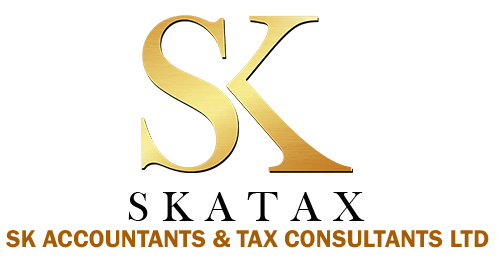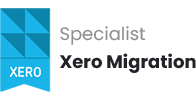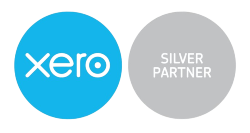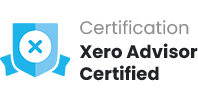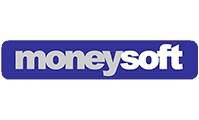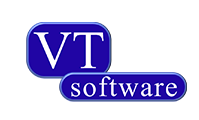There is some confusion related to mileage expenses rates for electric and hybrid company cars. This confusion has occurred because of HMRC’s advisory fuel rates, or approved mileage allowance payments, only cover petrol and diesel cars. Hence, there are no separate ‘approved’ rates for electric or hybrid vehicles.
Currently, while HMRC do identify that employees should be compensate for costs incurred for business travel, they do not currently identify electric charging costs as a ‘fuel’ expense and do not therefore, currently publish separate rates.
HMRC’s advisory fuel rates can be utilized to work out mileage costs in certain situations, for instance, where an employer refund an employee for fuel they have used on business travel in a company car, or where an employee is required to refund the cost of fuel used for private travel. Where the employer uses the advisory fuel rates (or lower rates) then no liability to tax or NICs will appear on the payments and they do not need to be report to HMRC.
Many small, unincorporated businesses prefer to use ‘cash basis’ for working out taxable income. Under this procedure, contributor will be taxed on the basis of the cash that passes through their books, rather than having to tackle complex and time-consuming calculations planned for larger businesses, who generally have to use ‘traditional’ procedures for tax purposes. While relieving the administrative problems of preparing ‘traditional’ accounts, using the cash basis can also guide with cash flow.
For the 2017/18 tax year onwards, the eligibility income threshold for using the cash basis has been importantly raised – it is now £150,000 (previously £83,000), meaning that many more small ventures can now use the scheme. The exit threshold, above which ventures must cease to use the cash basis, has also been raised from 6 April 2017 to £300,000. This means that many businesses will be able to continue using the scheme as they continue to produce.
- Broadly, voluntary contributions may be paid for any tax year in which the individual is matured over 16 and is:
- Recruited, but not responsible to pay Class 1 and/or Class 2 contributions (because income are too low to authorize for paying NICs);
- Excepted from paying Class 2 contributions (because income from self-employment have not reached the entitlement threshold);
- Not working;
- Resident in the UK but living or working on temporary transfer at overseas; or Independent.
Nowadays, the most popular trend is going on is that employer allow their employees to work from home, and in doing so, they pay an amount to cover any additional household costs incurred. What are the tax consequences of such expenses for the employee?
Broadly, if an employer makes a payment to an employee for reasonable additional household expenses and in which the employee incurs in carrying out duties of the employment at home under ‘homeworking arrangements’, there will be no tax liability which will arise.
Homeworking arrangements are basically arrangements between the employee and the employer under which the employee systematically executes some or all of the duties of the employment at home. If any part of the home is utilized exclusively for work, problems could arise on the future sale of the house as part of the capital gains tax; exemption on private residences may be lost.
HMRC’s rent-a-room scheme is an optional exemption scheme, which permits individuals to receive up to £7,500 of tax-free gross income (income before expenses) from renting out spare rooms in their only or main home. The exemption is divided where the income is shared with a partner or someone else. As long as income is below the annual threshold, it does not need to be reported to HMRC but if it exceeds, it needs to be reported to HMRC via the self-assessment system.
In order to authorize under the rent-a-room scheme, the living quarters must be furnished and a lodger can obtain a single room or an entire floor of the house. However, if the house is converted into separate flats that are rented out, the scheme doesn’t apply and also the scheme cannot be used if the accommodation is in a UK home which is let while the landlord lives overseas.
Also, it does not apply where part of a home is let as an office or other business premises. The relief only covers the circumstance where payments are made for the use of living quarters or accommodation.
A dormant company can be defined as which has no significant accounting transactions during the accounting period. A significant accounting transaction is described as one that the company should enter in its accounting records. If such transactions occur, then the company can have a dormant company status. Companies House has defined very specific transactions that the company can be liable to put through their records and still submit dormant accounts:
– Payment for shares by the benefactor to the memorandum of association.
– Fees reimbursed to Companies House
– Recompense of a civil penalty for late filing of accounts
Transactions like bank charges, earning interest on a bank account, buying and selling or paying for any other will create a company to lose dormant status since this too will be taken as a significant accounting transaction.
Stamp Duty Land Tax (SDLT) will not be eligible for first time buyers paying £300,000 or less for a residential property from 22 November 2017. But if they are paying between £300,000 and £500,000, then they need to pay SDLT at 5% on the amount of the purchase price in excess of £300,000, a depletion of £5,000 compared to the amount of SDLT they would have previously paid.
Who is classed as a first time buyer?
A first time buyer is basically an individual or individuals who have never possessed an interest in a suburban property in the United Kingdom or anywhere else in the world and who plan to inhabit the property as their main residence.
If the purchasing property is more than £500,000 then first time buyers will not be authorized to any relief and will pay SDLT at the normal rates and must be claimed in an SDLT return.
Can a Minor be Shareholder?
Yes, a Minor can be a shareholder because there is no minimum age requirement for a shareholder. ??
Can you pay dividends to Minors?
The board of directors decides to pay the dividends to the minor, but under the settlement rules HM Revenue & Customs can come back and say that you are just moving the money around.
Please see below the step by step guidance, if the outstanding DCA balance or overdrawn loan has been paid back by the director within 9 months & 1 day after the year end date.
To reclaim we have to go through the following steps.
Step 1: Visit the link and fill the L2P form online with below detail:
- UTR.
- The start and end dates of the accounting period when the loan was created.
- The date the loan was created.
- The start and end dates of the accounting period when the loan or part loan was repaid.
- The date the loan or part loan was repaid.
- The value of the loan or part loan repaid.
- The date when relief is unpaid.
- Your bank or building society details if you want us to reimburse you by Bacs
Step 2: After filling the L2P Form, you need to take a print of it and then sign and post it off to HMRC at following address.
Corporation Tax Services
HM Revenue and Customs
BX9 1AX
United Kingdom
Once HMRC approves it, tax charge will be repaid if it had previously been paid or it will be reversed from the HMRC portal.
Q: I have acquired a number of machines to mine Bitcoin; the intention is to mine the currency, retain for a period, and then sell. These machines are imported from China to the UK and my client has suffered import VAT. Is she sanctioned to VAT register and recover the VAT on these machines?
A: Bitcoin is the world’s first de-centralized digital currency and also known as a ‘cryptocurrency’.
Because cryptocurrencies are a relatively recent development, deciding the legal and regulatory status is ongoing.
Bitcoin operates independently of any bank or central authority; a peer-to-peer network controls the issue, processing, and verification of the cryptocurrency. Transactions are noted or recorded in a shared public database called a ‘block-chain’.
Testimonials
SK Accountants & Tax Consultants is one of the most professional and trusted Accounting Firms I ever dealt with in the UK. They are demonstrating a highly professional standards. Attending all inquiries on an immediate basis. Very Excellent customer service team and most importantly the unconditional care and support from the highly experienced accountants team. Thank you so much SK Accountants. I really recommend as the choice number one in United KingdomAbdul Rahman Abdul Majeed
It has been a very friendly, reliable and a swift experience for me with SKATAX. They have been very professional & efficient throughout the whole process. I would 100% recommend this firm to all businesses. Thank you KS, you and your team is great 🙂Azhar Khan
I have been with This company SK Accountant and Tax Consultant from last 5 years. They are very helpful in managing accounts and in consultancy. I definitely recommend everyone to use there services.Chaudhry Amir
I have used SK accountants and tax consultancy services to deal with one of my tax issues which was very intense and required lots of diligent planning. I was so pleased that the SK team was so proactive in dealing with my case, and their work was so detailed, which helped HMRC understand my tax situation. I would recommend SK to all those looking for proactive tax consultants.Danilov alexey
Positive: Professionalism, Quality, Responsiveness I have received consultancy advice from Mohsin Zafar, who has been very professional and helpful and answered many questions that I had. His responses were swift and concise. I recommend this company for consultancy services, they are very knowledgeableElena Zekonyte
We are Bronze Champion Partners with Xero Advisors
SK Accountants is the ‘one-stop-shop’ accountancy &
tax centre, servicing the needs of local SMEs and taxpayers
